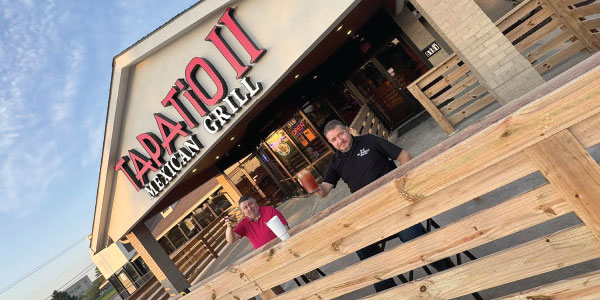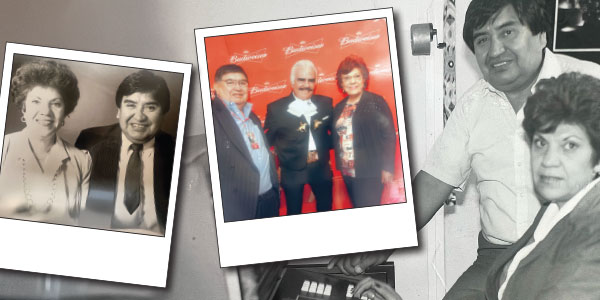
Una nueva organización de veteranos de combate está trabajando para albergar a veteranos que son indigentes y tratar las causas subyacentes de su situación. En tan solo el año pasado, el grupo ha empezado a construir viviendas temporales y ha transformado una tienda vacante de autopartes en un Veterans Outreach Center (centro de incorporación para veteranos) funcional, presentado en una gran inauguración el 30 de marzo. Allí, el Proyecto Comunitario para Veteranos ofrecerá servicios de asistencia para veteranos indigentes de “360 grados”.
El grupo se enfoca en satisfacer las necesidades insatisfechas de los veteranos indigentes y con el tiempo eliminar la indigencia de ellos. Incorporada como no lucrativa en septiembre del 2015, el Proyecto Comunitario para Veteranos planea construir “Veterans Village,” (Villa para veteranos) compuesta de 50 casas pequeñitas y un centro comunitario. El grupo completó la primera residencia temporal de 240 pies cuadrados en mayo del 2016.
Las casas pequeñitas proveen lo que los refugios convencionales de grupo no pueden: “privacidad, un sentido de seguridad, la capacidad de reintegrarse a un paso cómodo… y un sentido de orgullo y propiedad”.
Los ocupantes tendrán la libertad de “personalizar” los artículos en su casa, y cuando salgan de Veterans Village, tendrán la opción de llevarse todo con ellos. Los residentes de Veterans Village también tendrán acceso a un despensa de comida, asesoría profesional, tutoría, y recomendaciones a empleos y entrenamiento, pases para transporte público, recomendaciones a otros programas y servicios, cursos de computadora y servicios legales sin costo para ellos.
Veterans Village ocupará 4.2 acres al sureste de la calle 89 y Troost Ave una vez que todas las 50 casas y el centro comunitario estén construidos. La recaudación de fondos es constante para las casas, las cuales cuestan menos de $10,000 cada una. Los voluntarios son bienvenidos; no es requisito ser veterano. La primera casa fue construida por alumnos del Consejo Regional de Carpinteros, veteranos y sus familias y voluntarios
Ya hay docenas de agencias del área y organizaciones con buenas intenciones y establecidas trabajando para ayudar a los indigentes, pero el Proyecto Comunitario para Veteranos es único ya que trata de acercarse a todos los ex miembros del servicio militar que vieron combate, incluyendo a quienes fueron dados de alta deshonorablemente o que dieron servicio en la Guardia Nacional o en las Reservas. Ellos representan un creciente número de veteranos indigentes.
El ejército estuvo presionado a recortar rápidamente el personal cuando Estados Unidos retiró a soldados de Irak en el 2011. Como resultado, “miles de soldados de combate fueron expulsados de la fuerza militar con bajas poco honorables… y sin el beneficio de acceso a atención médica y otros beneficios otorgados a los miembros del servicio”, lo reportó el New York Times en un artículo el 11 de marzo.
Financiado y operado por veteranos de combate, el Proyecto Comunitario para Veteranos existe para darle una mano a los defensores de nuestro país de manera indiscriminada. “Nunca le digas que no a un veterano en necesidad”, es uno de los cuatro pilares de la organización. Los ex miembros del servicio militar que fueron a la guerra, arriesgaron su vida por el país lo merecen, se lo ganaron.
Veterans helping house homeless veterans
A fledgling organization of combat veterans is working to house veterans who are homeless and treat the underlying causes of their homelessness. In just the past year, the group has begun building transitional housing and transformed a vacant auto-parts store into a functional Veterans Outreach Center, unveiled at a grand opening on March 30. There, the Veterans Community Project will offer veterans “360-degree” homeless assistance services.
The group aims to fulfill unmet needs of homeless veterans and eventually eliminate veteran homelessness. Incorporated as a nonprofit in September 2015, the Veterans Community Project plans to build a “Veterans Village,” made up of 50 tiny houses and a community center. The group completed the first 240-square-foot transitional residence in May 2016.
The tiny houses provide what conventional group shelters cannot: “privacy, a sense of security, the ability to reintegrate at a comfortable pace … and a sense of pride and ownership.” Occupants will have the freedom to “customize” the items in their home, and when they transition out of Veterans Village, they’ll have the option of taking everything with them.
Veterans Village residents will also have onsite access to a food pantry, professional counseling, mentoring, job referrals and training, bus passes, referrals to other programs and services, computer literacy courses and legal services at no charge to them.
Veterans Village will occupy 4.2 acres southeast of 89th Street and Troost Avenue once all 50 houses and the community center are constructed. Fundraising is ongoing for the houses, which cost less than $10,000 each. Volunteers are welcome; being a veteran isn’t a requirement. The first house was constructed by apprentices from the Carpenters Regional Council, veterans and their families and non-service-connected volunteers.
There are already dozens of well-intentioned established area agencies and organizations working to help the homeless, but the Veterans Community Project is unique. It seeks to reach all former service members who saw combat, including those who were dishonorably discharged or served in the National Guard or Reserves. They account for a growing number of homeless veterans.
The military was pressured to downsize quickly when the U.S. withdrew troops from Iraq in 2011. As a result, “thousands of combat troops were expelled from the force with less than honorable discharges … and without the benefit of access to health care and other benefits granted to service members,” The New York Times reported in a March 11 op-ed piece.
Founded and operated by combat veterans, the Veterans Community Project exists to hold out a helping hand to our nation’s defenders indiscriminately. “Never say no to a veteran in need” is one of the organization’s four pillars. Ex-service members who went to war, risked life and limb for country deserve it; they earned it.










